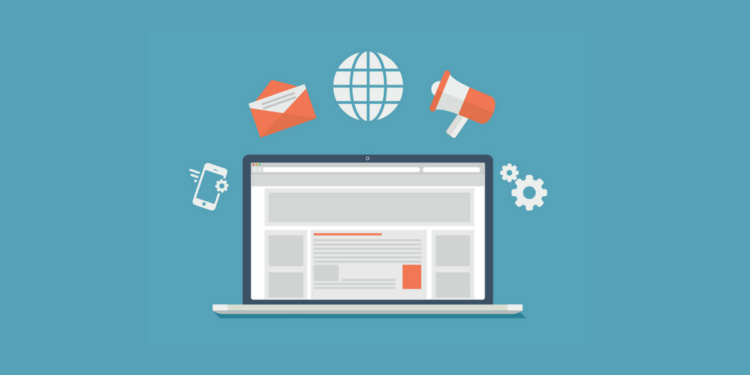Every business is set up with two primary goals in mind—profit-making and growth. Both of these goals require you as a business owner to invest significant time, effort, and money.
With e-commerce businesses, you are required to invest in several systems to achieve and sustain business growth. These systems help your business accommodate increasing online sales, achieving scalability, reducing woocommerce returns, boosting productivity, and profitability.
Scalability is your business’s ability to handle an increasing workload and overall growth. Ensuring scalability in startups is challenging, but very essential to the success of the company.
Here are some systems that will help you scale your new e-commerce business.


Table of Contents
A Reliable Hosting Software
An essential system to start scaling your new e-commerce store is a reliable hosting platform, such as Shopify or BigCommerce. An e-commerce hosting platform will help you put up your dream storefront in just a few easy steps while sparing you the stress of maintaining servers and hosting.
The platform will also cater to your security concerns, plus running, updating, and improving the systems that power your store. Additionally, these systems have the tools and services you need to build, grow, and manage your store efficiently and effectively. They also offer multiple features, scalability, and numerous templates for different niches.
Depending on your budget and business’s growth rate, you can opt to go for free website builder tools like Wix.com. Alternatively, if you want all the bells and whistles, you need to allocate the budget for a paid option, like Shopify or WooCommerce.
Before settling for any hosting platform, do your due diligence to find the right tool that will grow with your business. You should also choose a platform that focuses on your specialty areas and look at reliability or uptime scores.
Besides, do not forget to look at a website’s backup policy to ensure that your store can always revert to its previous state in case of breaches, failures, viruses, and hacking.
Inventory Management System
According to a Wasp small business report, increasing profits is the second-greatest menace for small businesses. Sadly, 43% of all these businesses do not track or rely on manual inventory tracking management methods.
Inferior inventory management methods eat up increasing profits due to lost productivity and massive human errors and inaccuracy levels. Therefore, inventory management software is an essential e-commerce business tool that keeps you informed of stock supply and saves your business time and money that may be lost due to ineffective stock tracking.
Cycle counting is a method of taking inventory on a sampled group of items known as a cycle count. For increased inventory management efficiency, you should select your preferred method from four available plans and make it a consistent part of your process. The best method depends on your business’s nature, size, specific needs, and challenges.
Marketing Tools
To attract and acquire new customers and retain old ones, you need to get the word about your brand and products out there. Marketing manually is labor-intensive, time-wasting, and downright ineffective.
That is why you need marketing systems or software that automate all your marketing processes from email and social media automation, marketing campaigns, and lead conversions.
An e-commerce marketing software like MailChimp or Klaviyo will help grow your email list and automate your emails and messages to prospects. These tools also help you with customer segmentation and allow you to track campaign performance.
Marketing software makes it easier for your business to scale as you do not need to rely on a specific person or team to keep up with marketing goals as your business grows.
Customer Relationship Management (CRM) System
A robust CRM system is key to new business growth and success as it helps maintain efficient operations and build long-lasting customer relationships. A CRM solution will allow you an opportunity to track past, present, future performance and discover customer behaviors and business trends that determine the growth of your online store.
It will also store customer data and integrate it with your store. Technically, your CRM makes up for the lack of daily one-on-one customer interactions, ensuring customer retention.
Through the insights provided by a CRM, you can develop highly targeted yet personalized marketing campaigns that hit the mark. CRM insights are also a critical tool you can use to beat your competition.
Some of the benefits you will take home by using a CRM system include:
- Personalized customer experience
- Stronger marketing efforts
- Improved sales forecasting and production planning
- Strengthened brand position in the market
- Minimal productivity and revenue losses
- Better operation efficiency and transparency
To pick the best CRM for your business, you need to focus on getting a solution that caters to your needs and priorities. Furthermore, look into the ability of the system to integrate with your website, applications, and how easy it is to be customized for your needs.
Finally, you must pay attention to the user-friendliness of the systems as you want to reduce the pain of running your business and not add to it.
Payment Processing Tools
The security and simplicity of a payment method on your e-commerce store go a long way in shaping customer relationships. You convert more business sales by providing your customers with a seamless checkout process because more site visitors are encouraged to complete their transactions.
However, when multiple unnecessary steps characterize your payment gateway, it will discourage your customers from completing the transaction and leave you with many abandoned carts. Fortunately, several third-party payment gateways such as Wise, Paypal, and Stripe make the payment process blissful.
These third-party tools are easy to integrate into most e-commerce platforms and deliver a secure checkout process. Security of your payment gateway also encourages online transactions as your customers are assured their credit card information is protected against fraud, chargebacks, and other security issues.
Thus, some features to look out for when choosing a payment gateway include PCI-DSS certificate and anti-fraud protection from the company. Also, go for a tool that offers easy management options for disbursements, refunds, and payouts. Do not forget to confirm whether a specific gateway supports multiple currencies, cards, and payment methods.
Shipping Service Integrations
Convenience has dramatically influenced the success of online shopping. Online customers love to place an order and have it magically appear at their steps. Shipping service integrations are the magic wand you need to provide your customers with the desired convenience and have them coming back again and again.
Shipping integrations for online stores automate the process of dispatching and delivering orders to shoppers. They allow customers an accurate and transparent shipping and handling cost estimate, the ability to track their package at all times, and seamless communications.
The benefits are not limited to your shoppers only because as a business owner, you save time and money by ensuring organized shipping and increased operational efficiency. When the service is handling the shipping process, your employers have more time to focus on more pressing issues.
At the same time, you don’t have to worry about eventually managing larger, more complex dispatches as your business grows. And the best part? You can integrate your store with several shipping service providers to compare prices and increase your cost-saving margins for you and your customers.
Analytics and Tracking Systems
As your business grows and your needs advance, it is necessary to track and analyze the sales information at every stage. This data will help you get a clear picture of their purchasing habits, like what brings customers to your store, what they want, and how you can retain them.
They also reveal which marketing efforts are working and the ones you need to change and give you a competitive advantage over similar stores. Analytical tools like Google Analytics and Kissmetrics provide you with statistical information featuring vast amounts of metric data.
You need to optimize your analytic tools around predetermined KPIs unique to our business scaling goals. Some of the questions analytical and tracking tools will help you to answer include:
- What are my most profitable marketing and revenue channels?
- What drives most of my customers? Is it email, social media marketing campaigns, or organic website traffic?
- Who are the most profitable site visitors?
- Which part of the customer’s journey do we lose the most customers, and why?
- What features and behaviors influence high customer retention rates?
Try These Tools
Incorporating these tools into your daily business process will bring insurmountable benefits to your business. They will help you accomplish your goals today and accommodate the needs of your evolving business.
You do not need to pick one over the other as most of them offer free trial periods, which allow you a feel of the app before you can commit and spend money for it. Take advantage of your free trial period to interact with the essential features for your business and decide whether a specific system is a good fit for your business.
You can find more tools that will help your business by browsing through our site. We also offer valuable advice and share tips and tricks that will help your business to scale up.

